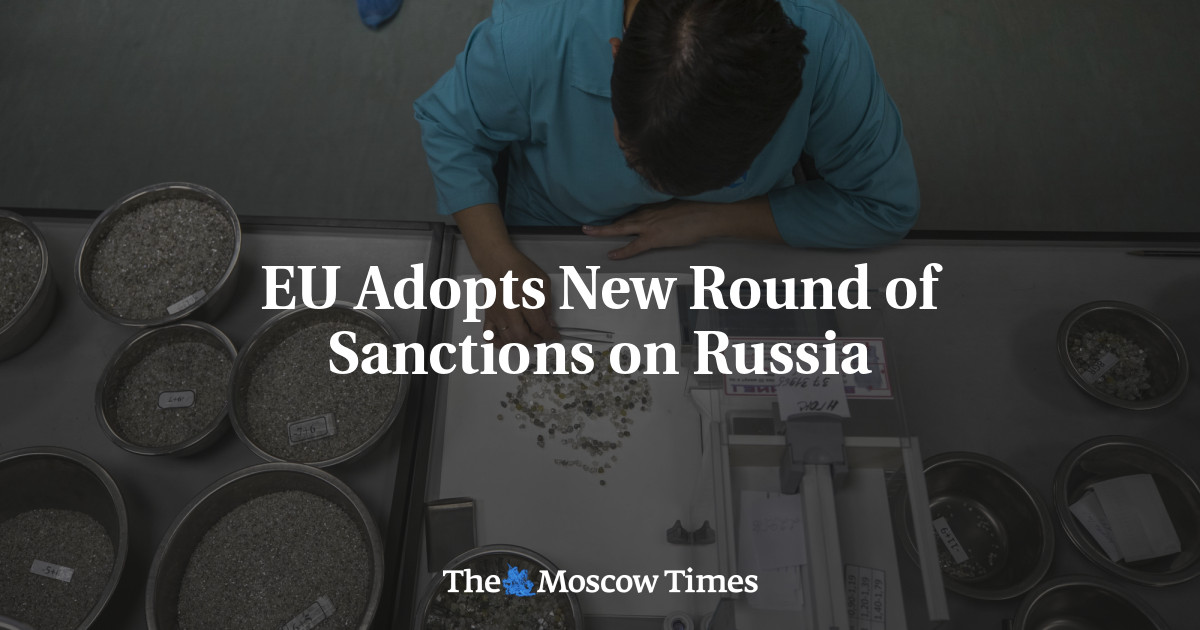
The European Union on Monday adopted a new package of sanctions on Russia that include an import ban on Russian diamonds, officials said.
The package is the 12th packet leveled at Moscow since it sent Russian troops into Ukraine on Feb. 24, 2022, in a full-scale invasion.
They are designed to reduce Russia’s access to revenues, metals and technology used to sustain its war effort.
The latest round of sanctions was settled last Friday by envoys from the 27 EU member countries but not formally adopted because of an objection from Austria that was subsequently lifted.
“We continue to stand with Ukraine, through thick and thin,” European Commission chief Ursula von der Leyen said.
The EU ban on Russian diamonds covers natural and synthetic varieties as well as in jewelry from January, and Russian diamonds cut in other countries as from September next year.
Moscow is accused of helping to fill its war chest with proceeds from diamond sales, which are worth an estimated $4 billion to $5 billion a year.
Belgium, which hosts a major diamond trading hub in its city of Antwerp, dropped its hesitation towards the ban following a G7 decision backing the measure.
The industry has proposed several solutions, including a tracking system, to limit the fallout of the sanctions on the business.
The sanctions package also extends EU efforts to restrict technology Moscow can get its hands on for military purposes, adding 29 more companies to a list of entities prohibited from exporting products able to help Russia’s arms industry.
Some of those companies are in countries outside the EU and are suspected of circumventing the bloc’s sanctions, according to a European Council statement.
Some countries, such as Kazakhstan, are accused of helping Russia import certain products and technologies that can bolster its military industry.
The EU is also seeking better enforcement of previous sanctions hitting Russian oil exports, which place a price cap of $60 a barrel on its crude.
Russia has been able to sidestep that measure by building a “dark fleet” of oil tankers, and also with the help of China and India, a researcher at the Carnegie Russia Eurasia Center, Alexandra Prokopenko, recently revealed.
The EU countries agreed a “strengthened information sharing mechanism” for tankers designed to identify ships involved in practices such as ship-to-ship oil transfers at sea, the European Council statement said.